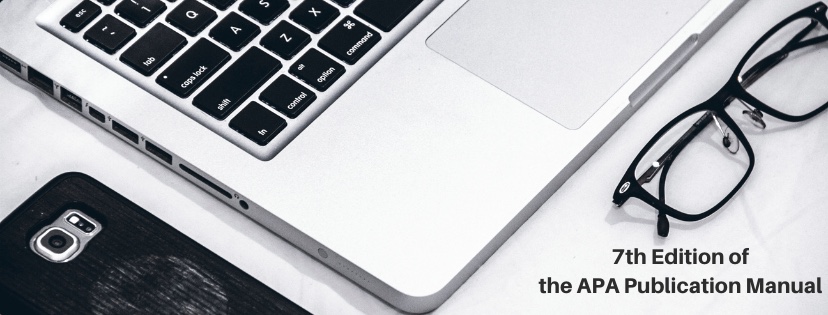Adopting Modern Language Association (MLA) style makes it easier for readers to navigate and understand the text. It ensures consistency in the use of the English language and formatting in academic writing. In this article, we bring you a complete guide on how you format your academic papers and essays in MLA style.

MLA style is one of the most commonly used to cite sources within the language arts, cultural studies, and other humanities disciplines in the academic field. The latest version of the MLA manual (9th edition) offers several examples for the general format of MLA papers, in-text citations, and the Works Cited page. Modern Language Association (MLA) explains the MLA principles as follows:
‘‘...building confidence in the information and ideas we share with one another is perhaps more important today than ever before, and for nearly a century it has been the driving principle behind MLA style, a set of standards for writing and documentation used by writers to find and evaluate information, alert their audience to the trustworthiness of their findings through citation, and shape the expression of their ideas in conversation with others. What we call “MLA style” has never been a static method, instead of changing over time to meet the needs of writers, students and instructors, and publishers.’’ (https://www.mla.org/MLA-Style, May 30, 2021).
Adopting Modern Language Association (MLA) style makes it easier for readers to navigate and understand the text. It ensures consistency in the use of the English language and formatting in academic writing. In this article, we bring you a complete guide on how you format your academic papers and essays in MLA style.
Before jumping up to the details, let’s have a glance at the basic guidelines for MLA format:
Margins: Set the margins of your document to 1 inch on the top, bottom, and sides.
Font: Use a legible font (e.g., Times New Roman) and make sure that italics look different from the regular typeface.
Text formatting: Use 12-point size.
Title case: Use title case capitalization for headings.
Indent: The first word in each paragraph should be indented ½ inch.
Space: Double-space the text of the paper.
Page header: Name and page number should be on the upper right of each page.
Citation: Don’t put a comma between page number, publication year, and author’s name.

MLA format may include the following information:
Author's last and first name
Title of source
Title of container
Other contributors
Version
Numbers and publisher
Publication date
Leave an inch from the top of the first page and set the left margin at first. Then, you need to write your full name, your instructor’s or supervisor’s name, the course name and number, and the date on the separate double-spaced line. Make sure not to underline the title and don’t put it in a quotation. You may follow the rules of capitalization outlined in 2.90. Don’t italicize words unnecessarily.
You need to number all the pages consecutively throughout the paper. On the upper right-hand corner and half an inch from the top, type your last name and enter SPACE and then type the page number.
For this process:
You need to double-tap at the top of a page and then type the last name of the author.
Don’t forget to allow auto page numbering and make sure to use the right align-content.
However, restrain yourself from using the abbreviation “p.” before the page number.
Don’t use any other mark or symbol. Word processing programs generally create a running head of this kind on every page automatically.
The utilization of headings and subheadings properly helps students organize and structure the research paper writing. Consistency in the style of your headings and subheadings keeps the clarity of your project intact. Word process software often uses built-in-heading styles. In general, there is no particular set of heading formatting requirements in MLA style.
Being one of the most reliable proofreading and editing services, we recommend you use similar font and size as you use in the body. But don’t forget to utilize title capitalization. You can use bold and italics as per your convenience and the requirement of the project. Take note that you can modify your headings in both Google Docs and MS Word. Here are the formats of headings and subheadings in MLA style:
Heading Level 1 (Chapter Title)
Heading Level 2 (Section Heading)
Heading Level 3 (Subheading)
The list of your cited sources needs to be located at the end of the paper. Though you need to list all the cited sources in your paper alphabetically, make the heading work cited if the list deals with only one entry. Use double space between the heading and your first entry.
You need to write the title “Works Cited” at the top of the page and center it. After the title is placed, press ENTER and insert the references.
Note: If a reference entry is longer than a line, each line should be intended ½ inch. All the entries need to be double spaced like the entire text.

Inserting the tables, illustrations, and other visuals properly is essential to give the assignment a complete look. MLA style follows its own formatting guidelines. A table is generally labeled and given an Arabic numeral you need to type both label and title flush left on separate lines. To avoid any confusion, you can set the notes to the table with lowercase letters, not with numerals. Use the double-spaced formatting throughout the table and dividing lines where required.
Do you need an expert to review and edit your manuscript?
Have you completed writing your manuscript? Do you want someone to review the entire article and make necessary changes if required? If yes, we bring the most trusted and efficient editing and proofreading services near you. At Best Edit & Proof, our experts will edit and proofread your papers to make necessary changes.
Best Edit & Proof expert editors and proofreaders focus on offering manuscripts with proper tone, content, and style of academic writing and also provide an upscale editing and proofreading service for you. If you consider our pieces of advice, you will witness a notable increase in the chance for your research manuscript to be accepted by the publishers. We work together as an academic writing style guide by bestowing subject-area editing and proofreading around several categorized styles of writing. With the group of our expert editors, you will always find us all set to help you identify the tone and style that your manuscript needs to get a nod from the publishers.
You can also avail of our assistance if you are looking for editors who can format your manuscript, or just check on the particular styles for the formatting task as per the guidelines provided to you, e.g., APA, MLA, or Chicago/Turabian styles. Best Edit & Proof editors and proofreaders provide all sorts of academic writing help, including editing and proofreading services, using our user-friendly website, and a streamlined ordering process.
Kindly visit our order page if you want our subject-area editors or language experts to work on your manuscript to improve its tone and style and give it a perfect academic tone and style through proper editing and proofreading. The process of submitting a paper is very easy and quick. Click here to find out how it works.
Our pricing is based on the type of service you avail of here, be it editing or proofreading. We charge on the basis of the word count of your manuscript that you submit for editing and proofreading and the turnaround time it takes to get it done. If you want to get an instant price quote for your project, copy and paste your document or enter your word count into our pricing calculator.
If you need support for editing and proofreading services, contact us. You can also e-mail us or use the 24/7 live chat module to get direct support. We have a 24/7 active live chat mode to offer you direct support along with qualified editors to refine and furbish your manuscript. Alternatively, you can text us through our WhatsApp business support line.
Follow us on Twitter, LinkedIn, Facebook, Instagram, and Medium.
For more posts, click here.
Do you like this article? Make sure to share and subscribe!
This quick guide provides guidelines for MLA format for academic papers and essays. To give you an opportunity to practice proofreading, we have left a few spelling, punctuation, or grammatical errors in the text. See if you can spot them! If you spot the errors correctly, you will be entitled to a 10% discount.
How to Cite Sources in APA Referencing Style | With APA 7th Edition Update
30.11.2020
Importance of Citations in Academic Writing
05.03.2022
How to Use ‘‘et al.’’ in APA Style (7th Edition)
28.11.2020
A Complete Guide to MLA In-Text Citations
01.06.2021
How to Format DOI in APA Style (APA 7th Edition Update)
29.11.2020
APA Manual 7th Edition: The 9 Most Important Changes
29.11.2020
Importance of Academic Referencing and Citing
19.11.2020
How to Cite eBooks in APA Style (7th Edition Update)
21.12.2020
How and When to Use ''et al.'' in APA In-Text Citations
27.11.2020

The purpose of APA style is to uniform use of elements such as selection of titles, headings, subheadings, citation of references, tone, punctuation, and abbreviations, presentation of numbers and statistics, formatting of tables and figures, and many other elements that are a part of the manuscript. The APA style consists of in-text citation and reference list entry.
Continue Reading
The American Psychological Association (APA) introduced the 7th edition of the APA Publication Manual in 2019 and replaced the previous one, the 6th edition. Since then, several things have changed. The 7th APA edition updated citing ebooks as well.
Continue Reading
The term ‘‘et al.’’ is the abbreviated form of the Latin term ‘‘et alia,’’ which means ‘‘and others.’’ It is used in academic in-text citations when referring to a source with multiple authors. In APA style, for a source with three or more authors, list the first author’s last name and “et al.” for all citations, including the first citation.
Continue Reading